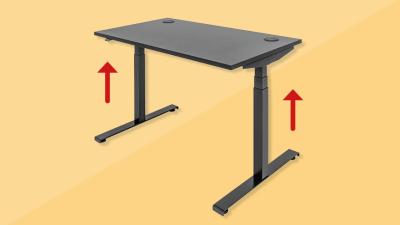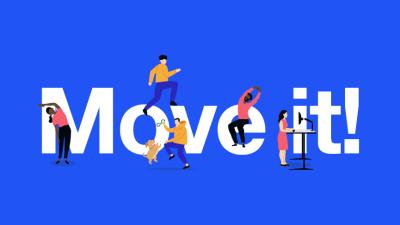Mobiles have undoubtedly changed the way we live and work, but have all the changes been for the better? In this post we explore our love affair with our mobile phones: the good, the bad, the ugly...and the solutions.
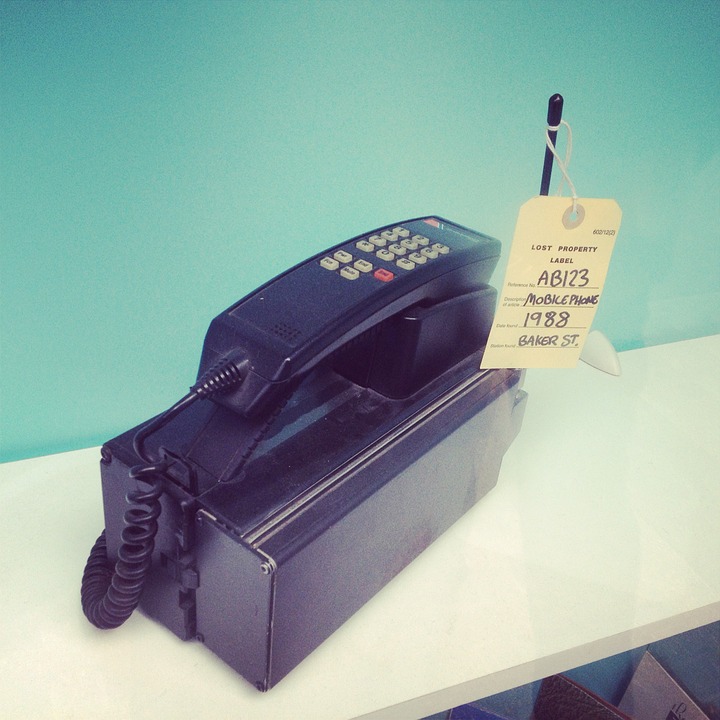
The first commercial mobile phones hit the market in the early '80s. They were expensive (the Motorola DynaTAC 8000X - the granddaddy of all mobiles - was £2,638), the batteries lasted all but 30 minutes of talking time, and they were HUGE - a far-cry from the neat, palm-sized gadgets we slip into our pockets today. But the concept was an immediate hit and it didn't take long for the technology to improve and prices to drop.
In a recent LinkedIn post, the famous Virgin founder Richard Branson revealed how the mobile phone shaped his early career: "I was among the first people to try a mobile phone. It was bigger than my head! Once I got my hands on my very own device, my life changed for the better. Just as the name suggests, my mobile phone gave me so much more mobility. I was freed to do what I enjoy doing the most: getting out there, traveling and meeting people. I hit the ground running."
The good
Branson, like millions, profited by being unshackled from his desk telephone. It gave him two simultaneous lines of communication: real-life face-to-face meetings, and calls from his portable telephone. Put simply, his mobile doubled his productivity as he set about expanding his business.
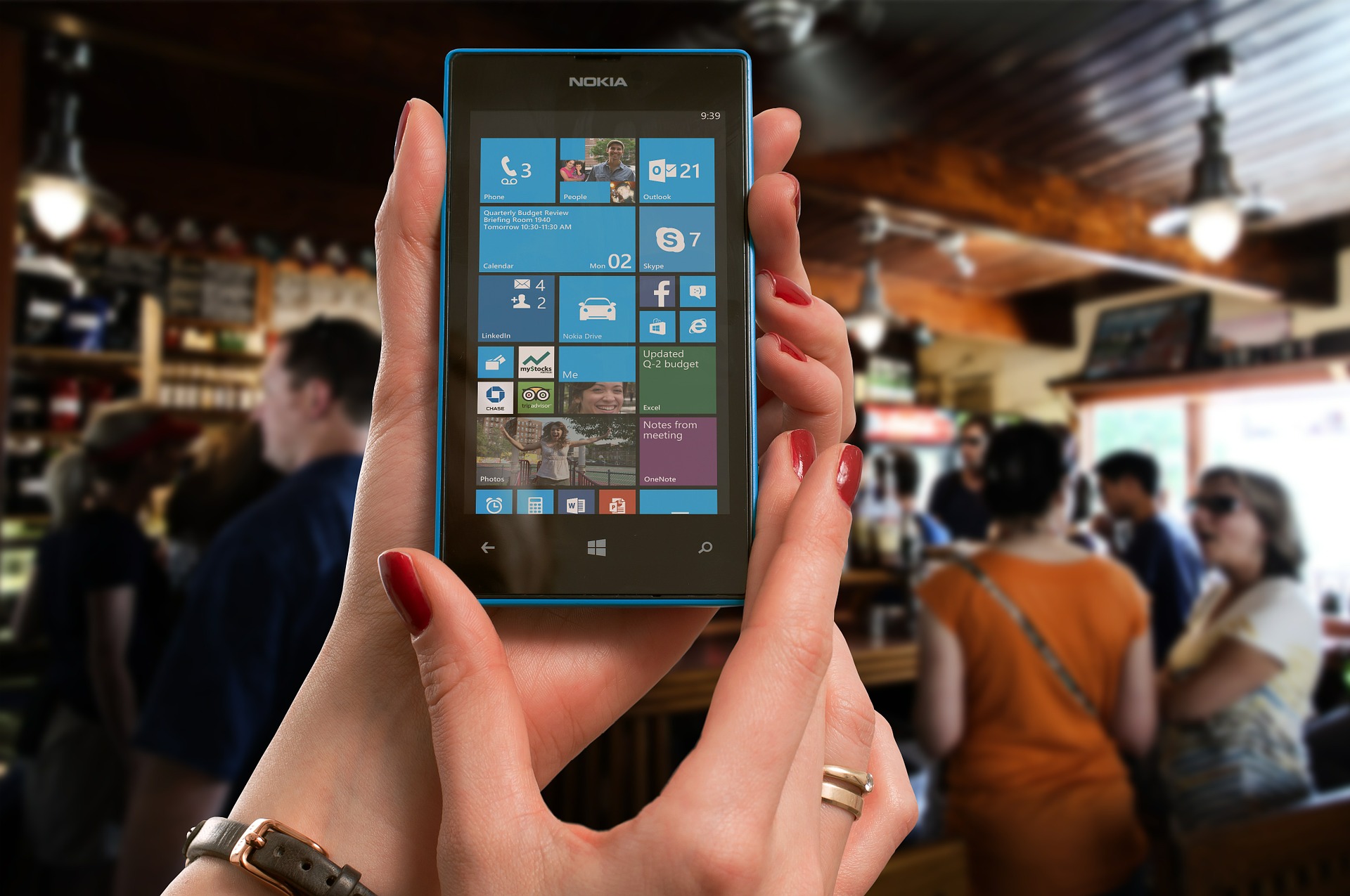
As well as boosting productivity directly, mobile use can have an indirect influence on productivity by improving our health (thereby reducing days lost to illness). Using a mobile can:
- Encourage more physical activity (exercise lowers risk of disease).
- Allow us to get outside for fresh air and mental stimulation.
- Encourage changing postures (reduces risk of musculoskeletal disorders - MSDs).
Of course, today making calls is just one function of a mobile phone. Smartphones change the way we access and share information. There's an app for nearly everything. We can tap out emails from a hammock in Fiji, write a blog post on the train, sort out our accounts in the bath, or Skype our clients from the sofa - if we want. Smartphones give us more choice. Instead of having to arrange our lives around where the phone or computer is, we can take our work out with us, and never have to miss a thing.
The bad
The mobile revolution may have freed us from our desks, but experts warn there's a darker side to the digital age.
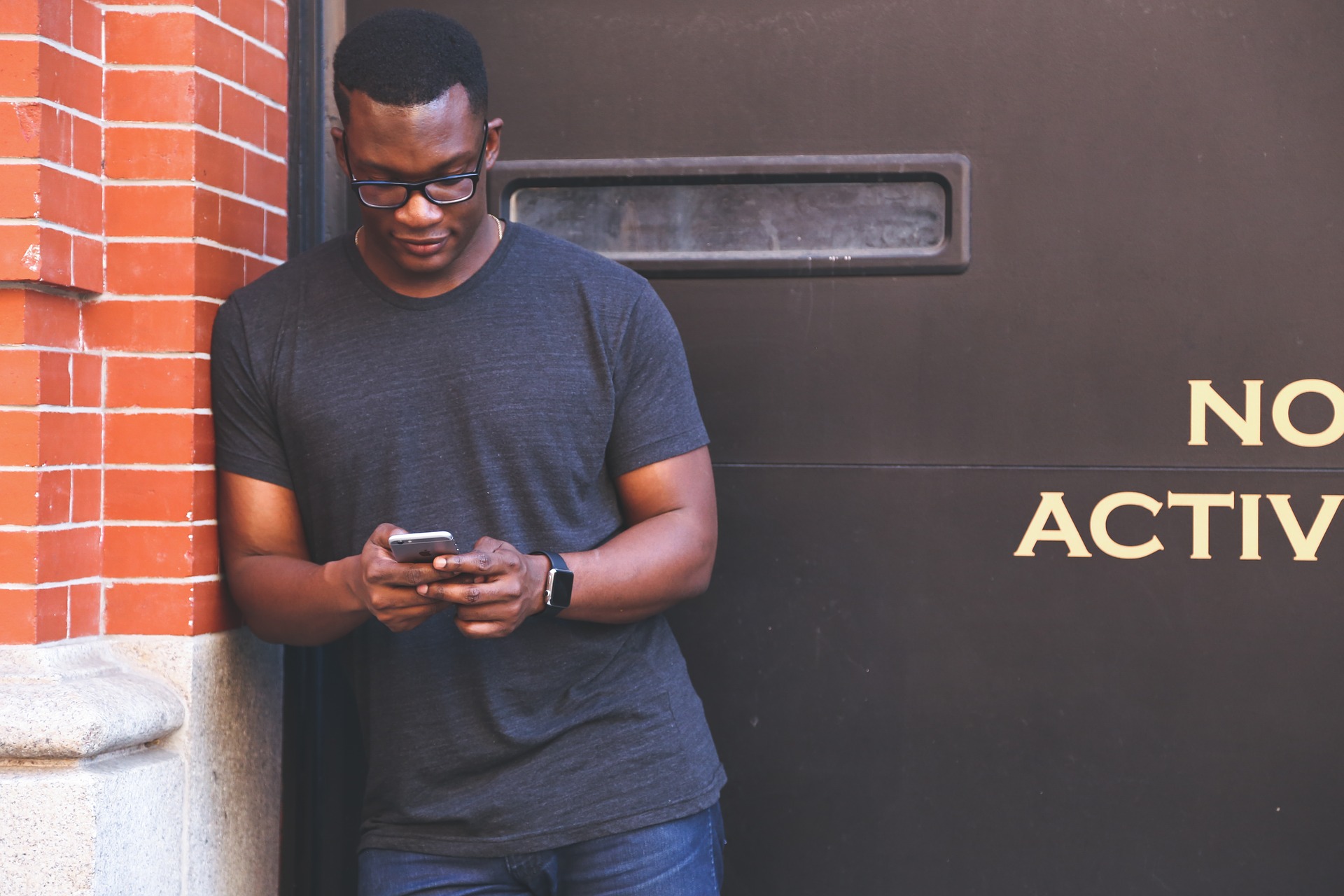
According to a report by Deloitte, the UK has 'never been more addicted to smartphones'. One in three people admit to checking for messages at night, with the same number claiming their smartphone use causes rows with their partners. One in 10 admitted reaching for their phone the moment they woke up - with a third grabbing the device within five minutes of waking. Smartphones can distract us from real life. When the whole world is at your fingertips, it's difficult not to get lost in endless streams of information, images, stimulation. More of us are choosing to browse Facebook over reading a book; Instagram over catching up with a spouse; news apps over writing that work report. Smartphones are a prone procrastinator's worst enemy.
The ugly
While overuse and addiction is certainly worrying, we've yet to delve into the truly ugly side of using smartphones.
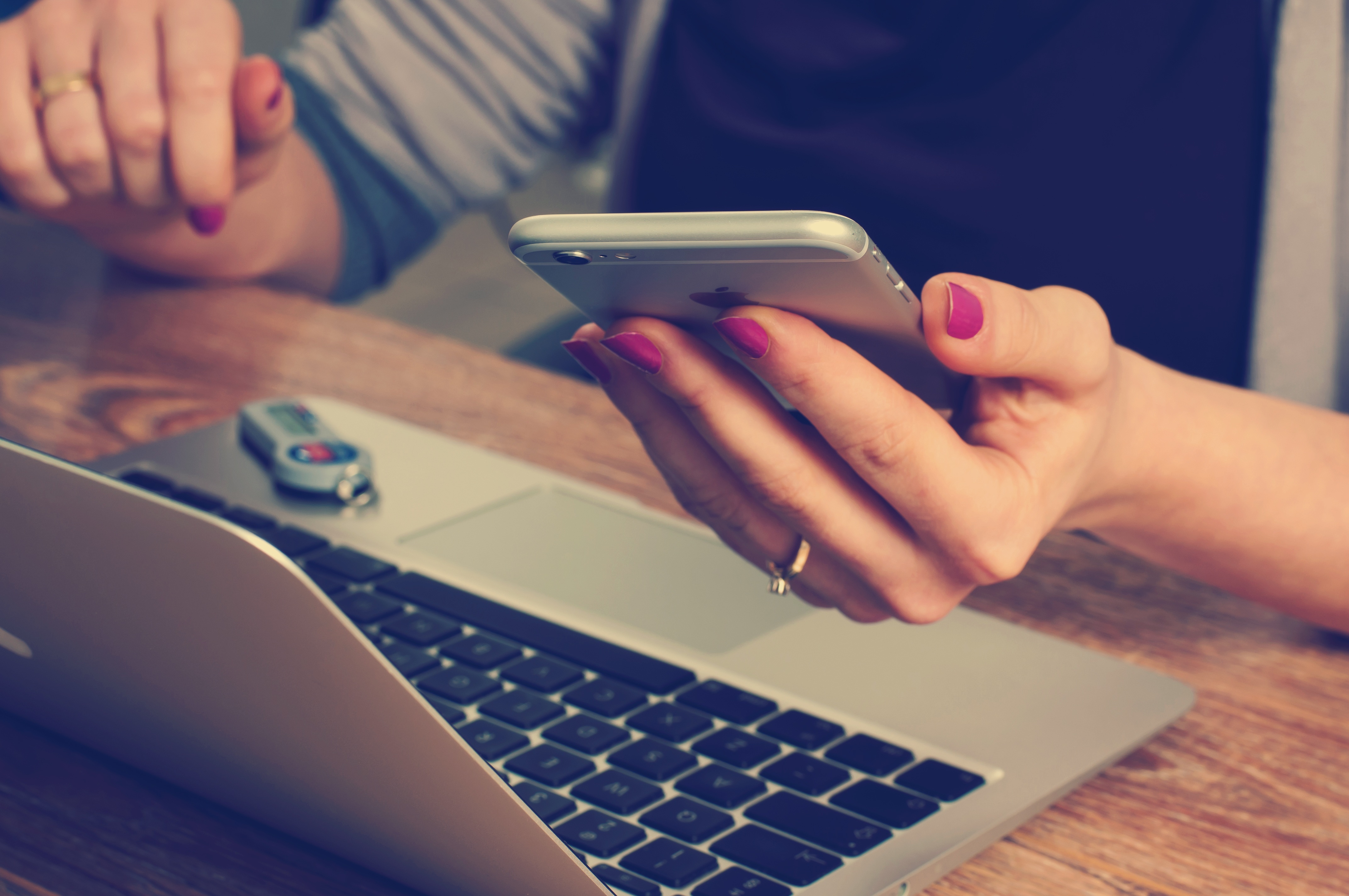
While the hand-held design does free us from our desks, it doesn't encourage a healthy working position - which is why it's ill advised to spend too long using a smartphone. According to OfCom, we're now spending as long as eight hours and 41 minutes on our media devices every day. That's a long time to be hunched over a palm-sized screen, using the same finger to scroll through endless feeds.
What physical impact does this have on our bodies?
Health professionals have dubbed a range of terms to describe smartphone-related health complaints.
Problem: Tech neck
The further you hang your head to look down at your phone, the greater the weight on your spine. Over time, this can cause pain in your neck and back - something experts have dubbed 'tech neck'. 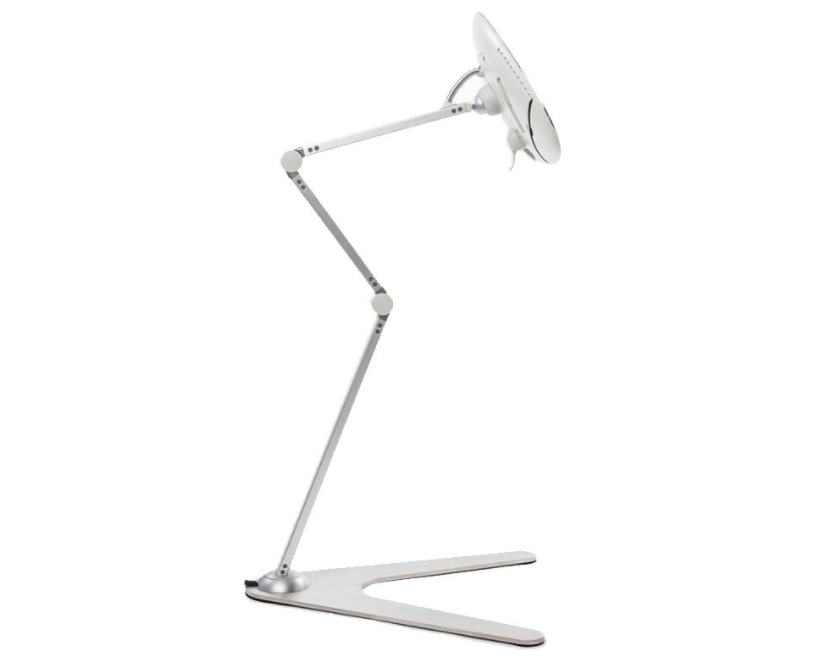
Solution:
We supply a range of products designed to bring handheld devices up to a more comfortable height. The Mukava MK-150 freestanding table can be moved around the home or office to support papers, books, laptops, and even tablets and smartphones. It comes with clever non-damaging magnetic pads that attach your phone to the Mukava's surface. Plus USB ports for charging while you use your device.
Problem: Text claw
All that frantic texting can overuse the small muscles in your hand, leading to pain in the wrist and forearm. Over time this can lead to tendinitis and even carpal tunnel. 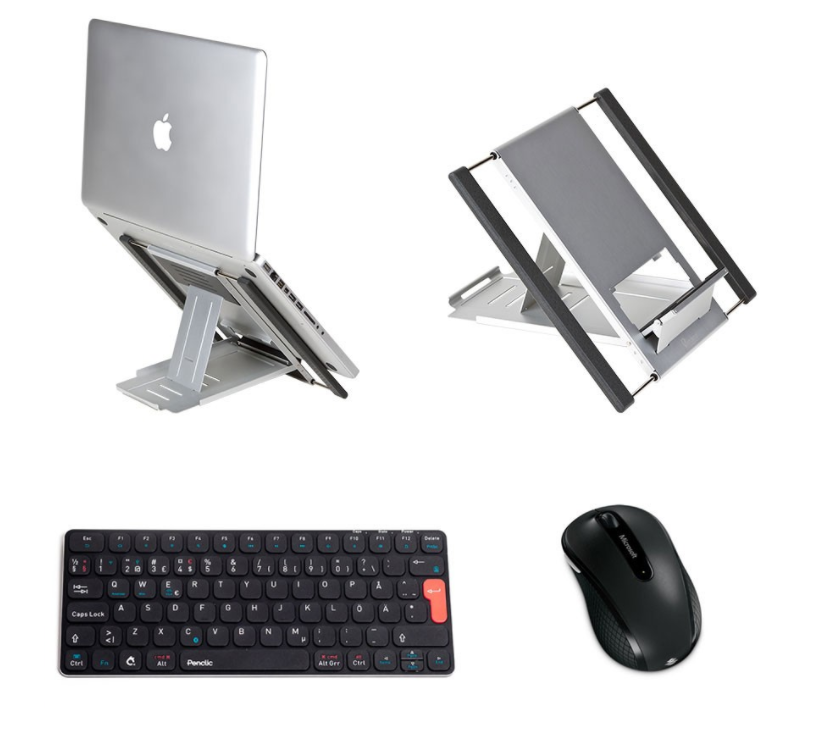
Solution:
Text less! Use a laptop with a stand and separate keyboard (as demonstrated in our ergonomic laptop packs) to carry out longer writing tasks, and save your phone for quick emails and note jotting.
Browse our collection of ergonomic mice, keyboards and laptop stands ›
Problem: Screen sightedness
Short sightedness among young people has increased recently because of smartphones, leading laser eye surgeon David Allamby has claimed. Mr. Allamby says there has been a 35% jump in the number of people with advancing myopia (short sightedness) since smartphones hit the market. He has warned the problem could increase by 50% in the next ten years.

Solution:
Apart from the obvious (don't spend so long looking at screens), wearing blue light-deflecting glasses like Ocushield Glasses can help reduce fatigue, eye-strain and long term vision deterioration. Why risk something as important as your eyesight?








